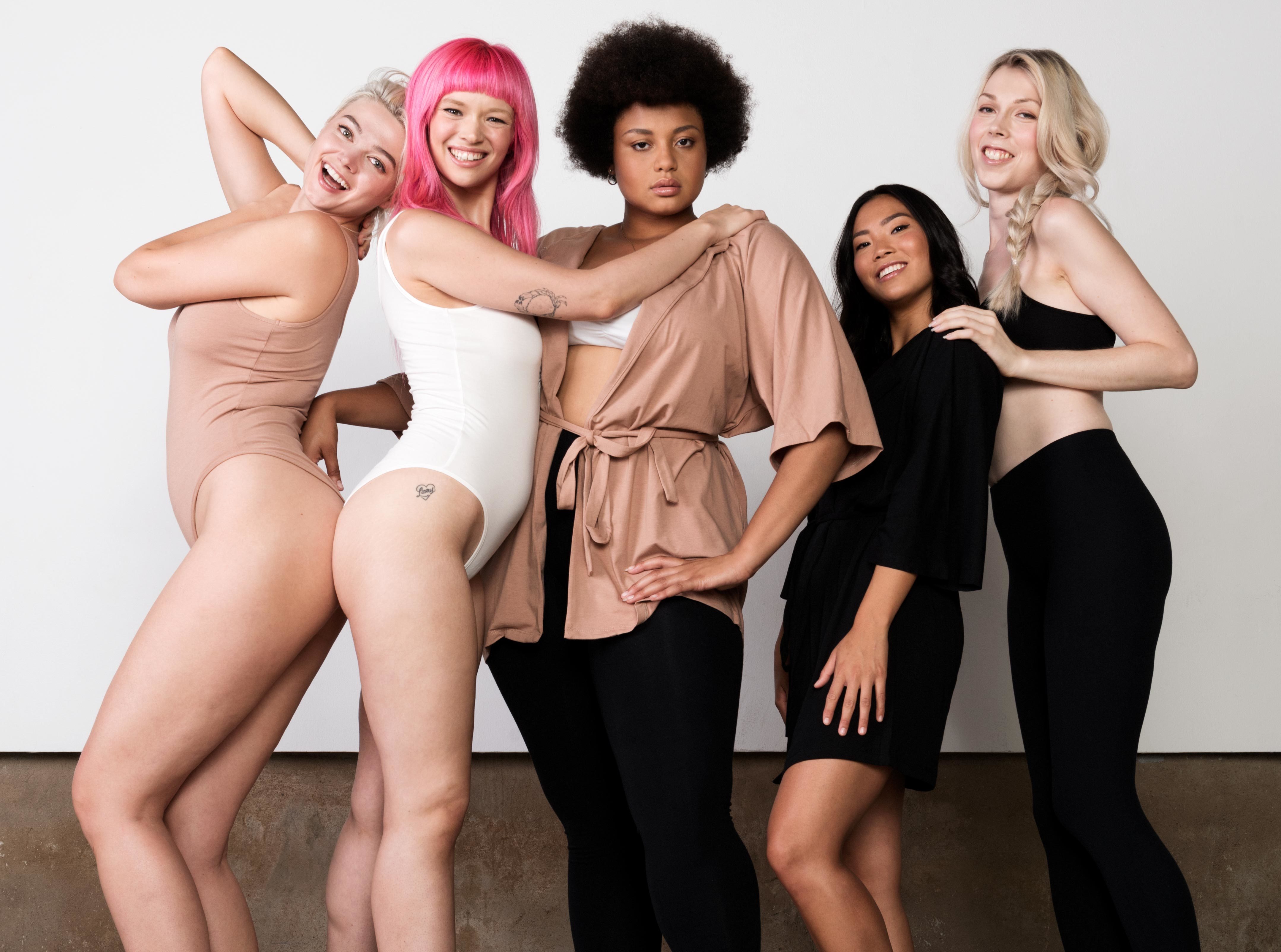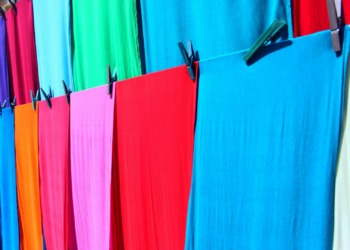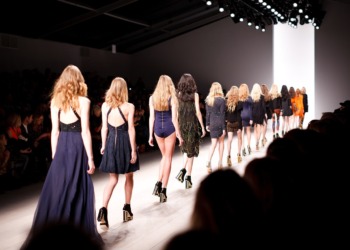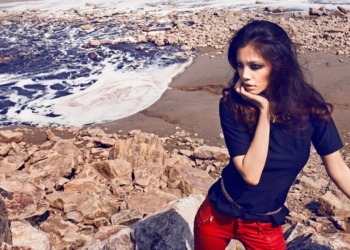While many companies struggle with finding and maintaining a clear and defined vision, apparel-maker Miakoda hasn’t had to worry about such things ever since its formation. Guided by its two foundational principles of sustainability and ethics, the company produces multiple product lines using only plant-based materials like cotton and bamboo, eschewing any animal or toxic materials in the production process. In addition, all of their products are produced in a New York City factory that’s consistently monitored for its practices and work environment. The company’s distinct character is strongly influenced by that of its co-founders, sisters Julia and Laura Ahrens. Interested in learning more, I chatted with Julia about Miakoda’s principles, long-term goals, and the influence yoga has had on her and her company.
Q: What is the origin story of Miakoda?
JA: I went to school for fashion design, and at the end of my time in college I went vegan, started practicing yoga, and really started to think about my role as a designer and as a consumer. When I started applying to companies to work for, I felt so stuck because I found it really hard to find companies that were actually hiring, especially a company that was really going out of its way to be conscious and mindful. I found it really hard because a lot of the companies that were recruiting me were fast-fashion brands, and I felt so opposed to working for someone like that because it wasn’t something I felt good about. So I spoke to my sister, who is a yoga teacher and had a huge influence on my path of being more mindful and conscious, and we decided that we would start our own brand to create more options in the market.
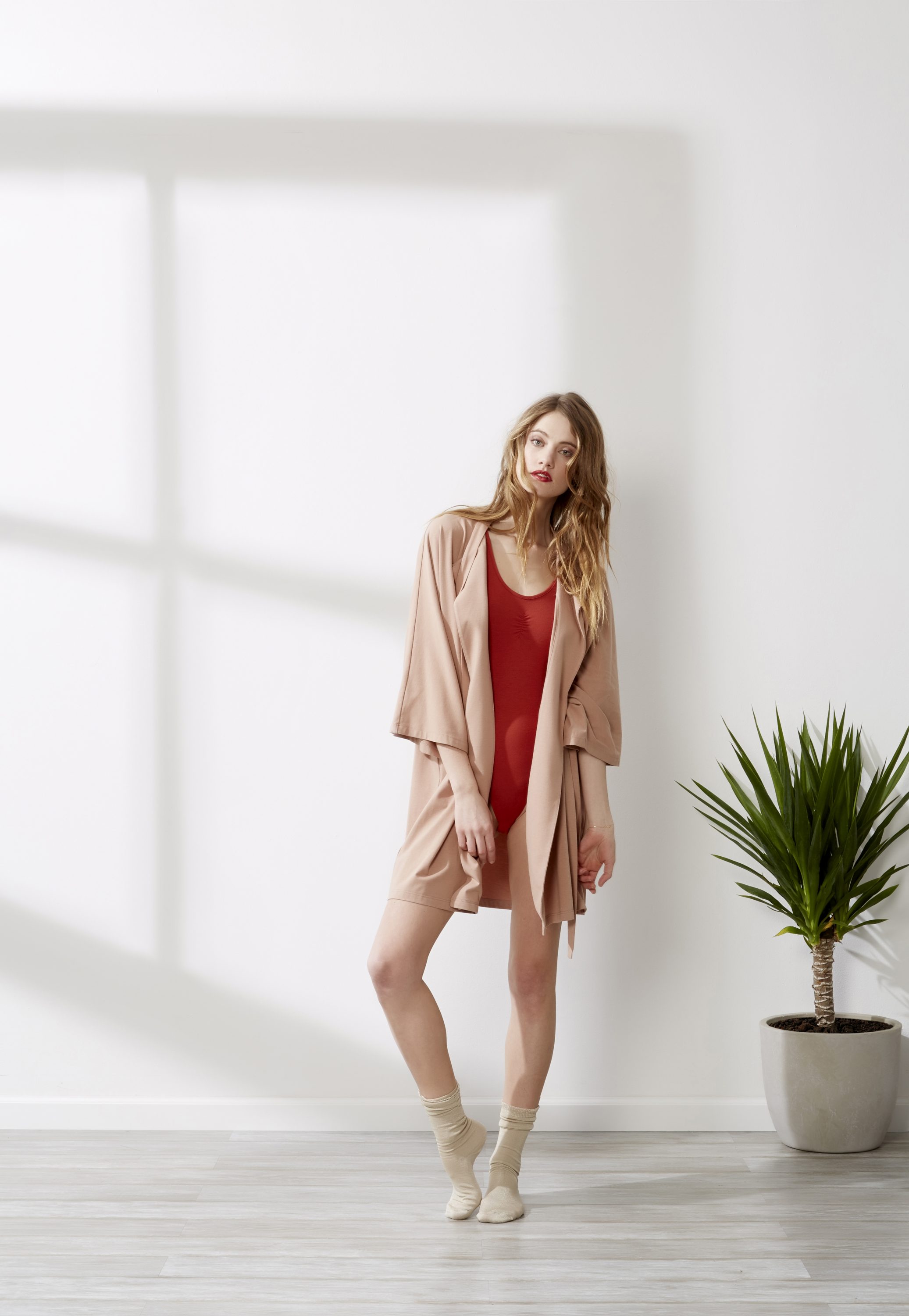
In the photo: Miakoda clothing Credit: Miakoda
Q: Two of the biggest principles of Miakoda are sustainability and ethics, how do you and the company work to embody those principles in practice?
JA: We always use eco-friendly/organic fibers, which are always plant-based just because as humans and as a company we’re opposed to animal agriculture, especially in the way that it’s done in mass-market. I’ve been on organic farms in Vermont where they do really great rotational grazing that’s so good for the land and the animals are the happiest animals I’ve ever seen in my entire life. But other places where they’re trying to get wool for the masses and they’re truly mistreating the animals, or where they’re getting leather and anything that actually kills an animal and supports the meat industry, we’re not into that all.
In terms of sustainability, we really go out of our way to find fibers that have a really low impact, whether they’re organic or eco-friendly. An example is bamboo that requires very little water. All of our dyes are low-impact, meaning they use low water, low heat, and no chemicals or toxins.
In terms of ethics, we only work with fabric suppliers that monitor their supply chain, and we work with a factory in New York City that I talk to pretty much daily and visit a couple of times a month to make sure that everyone’s treated really well. Actually, when I first started working with this factory I came in at 3 o’clock, and there was nobody there except for the owner. I go “where is everybody?” and he says, “well you know, most of the people who work as garment workers are women, and their kids get out of school and they like to be home for their kids,” and I think that is awesome! So we always make sure that everyone’s treated well, and really our company came from a place of wanting to have options that we would want to support personally. It’s never like we’re trying to swindle one over on our customers by not producing something that’s super sustainable or super ethical, because we want to wear it and feel good about it too.
Related article: “LUNAPADS: MAKING PERIODS SAFE AND SUSTAINABLE” by Alexandra Tyan
Q: Both you and your sister Laura (who’s also a co-founder) practice yoga in addition to your business ventures, has yoga influenced your work with Miakoda, and if so how?
JA: Honestly, yoga completely transformed the way I think about everything. When my sister first did her yoga teacher training, she said to me “you need to do this!” I’ve been a vegetarian since I was 11, and I’ve been very much into animal rights and ethics and all of that, so she said, “you need to practice yoga, it’s so aligned with how you feel!” I was thinking, “physical activity, I don’t know, it’s not really my thing.” As part of her teacher training she also had to teach private lessons, and when she started teaching at a studio she said, “c’mon, you need to support me, you need to come to this!”
And I got so hooked. I really found myself attracted to teachers who talked more about the spiritual practice than just the asana or physical practice, because it felt like I was doing something physical but I was also thinking about more things. I was really in the moment and really connected to something bigger than just exercise or physical movement. Even if you study yoga, asana isn’t the first limb of yoga, there’s everything that comes before it, so it’s really a spiritual practice that really made me think about how I don’t want to hurt or harm humans or the planet. I think it just really makes me feel more connected to the planet as a whole, and all the people and animals on it.
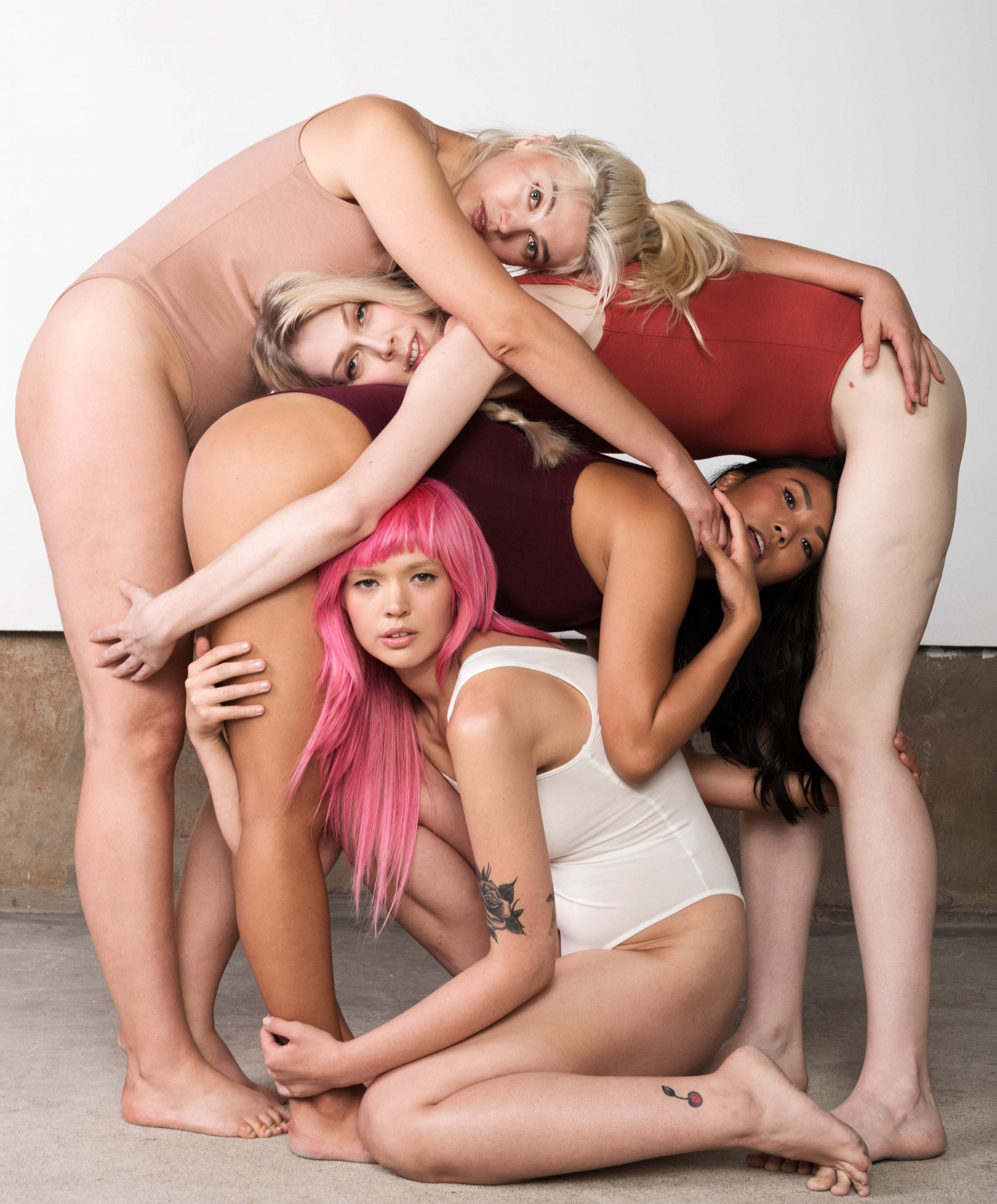
In the photo: Miakoda yoga clothing Credit: Miakoda
Q: It’s interesting how you mention that yoga is more than just a set of physical exercises.
JA: There are so many things with yoga, they have hip-hop yoga now where they blast music and it’s fun. Now that I enjoy the physical practice that’s totally fun too sometimes. It’s funny because since I’ve started practicing yoga I’ve gotten really into exercise in all different realms, especially running where you can focus on your breath and enjoy the movement, which is very different from how I used to be. All those sorts of things really just make you in tune with the world.
Q: What does the future of Miakoda look like in your eyes?
JA: I think the number one thing, especially this year, that is a really big goal for me and for the company is education, because when I first started Miakoda I thought “I won’t really push the ethics and the sustainability and all of that because I don’t want people to feel like they’re not doing enough or that they need to change their entire life.” I didn’t want to push my beliefs and morals onto them.
But this year I started, especially with social media, spreading some more information, just because information and knowledge really is power, and that if you don’t tell people why something is important they’re not going to know. I think about how much I didn’t know about the fashion industry, and you can’t create change if people are just sitting in the dark. So I’ve been trying in a really positive way to just tell people the things that go on in the fashion industry, things that go on in animal agriculture, things that go on in terms of ethics and sustainability, and how every purchase and every intentional action creates a positive impact. People don’t need to change their entire life or wardrobe to have an impact. Every little thing counts because it adds up. I’ve found that educating people has helped the company grow, and as we grow we can have a bigger impact. That’s my big goal, just to educate people and to keep growing.
Editors Note: The opinions expressed here by Impakter.com columnists are their own, not those of Impakter.com


